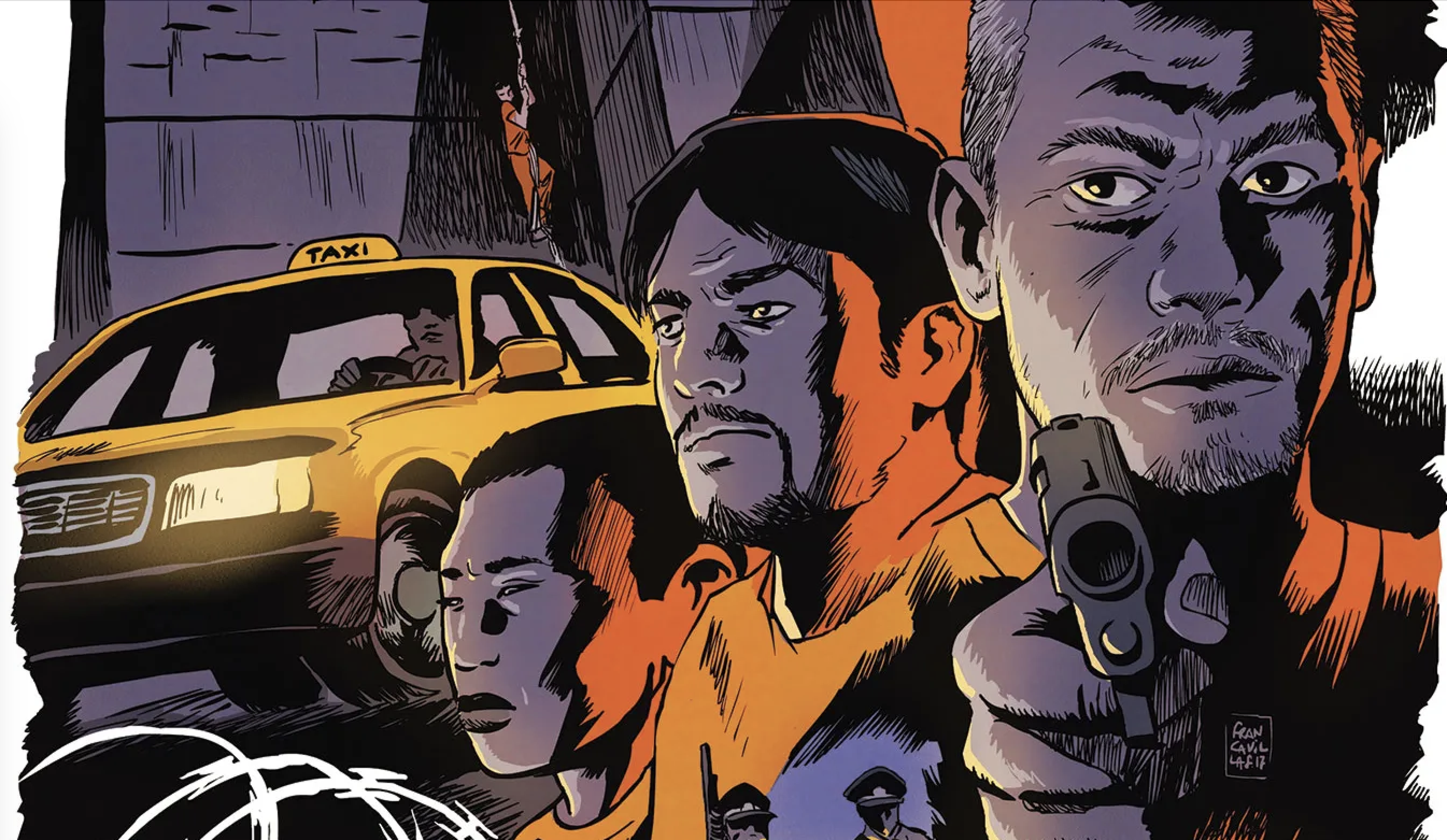The accidental getaway driver
Sing J. Lee’s The Accidental Getaway Driver has a lot on its mind, or at least it purports to. Based on the true story of a Vietnamese driver who gets kidnapped by 3 escaped prisoners, Lee’s film wants to be two things at once. An intimate character study of an elderly man looking back at his life and his regrets, and a crackling neo-noirish crime story. The movie ultimately fails at both, with its uninspired writing, terrible acting, and abysmally slow pacing making for a grueling viewing experience.
Despite its title, this movie is in no way, shape or form, a madcap comic romp. The movie opens on Long (Hiep Tran Nghia), an elderly Vietnamese man who gets coerced into doing one last job for the night—picking up 3 men for a quick drive. Little does he know that these men—Tay (Dustin Nguyen), Aden (Dali Benssalah), and Eddie (Phi Vu) are escaped prisoners. They soon kidnap him, forcing him to drive them around, and then to sit with them in a hotel room while they plot their next move. As the tension among the trio slowly come to a head, Long’s hostage experience seemingly reminds him of his past, as he flashes back to his memories in a prison camp and to long-ago fights with his estranged family. I say ‘seemingly’ because there’s no apparent thematic connection between the present-day events and Long’s past, save for a half-hearted forced filial relationship between him and Tay, the only one of his captors to possess a conscience.
The film’s identity crisis is apparent from the start. The opening scene depicts a boy bathing in a waterfall, as lovely Vietnamese music plays on the soundtrack. The imagery is lyrical, poetic, and suggests a movie that will focus more on mood than substance. This is partly true, as there are several scenes in which Long appears to be disassociating. In these sequences, we see what he sees, as the camera lingers on a spinning ceiling fan, a hand tightening on a steering wheel, and so on. These make for a jarring contrast with the poorly written and acted crime subplot. Aside from Nguyen, who does his best to add depth and warmth to his character, the cast fail to rise above superficial, obvious dialogue and plotting. Tensions build among the group, and bonds are formed, particularly between Long and Tay, but none of it feels earned or believable. Aden in particular sucks the energy out of his scenes, as Benssalah leans into the cartoonish, villainous nature of the character. He’s such an over-the-top, one-dimensional ringleader that you wonder why he doesn’t have a handlebar mustache to twirl during his monologues. Long himself is also a dull presence, as the actor mostly just looks confused throughout the entire film. When he suddenly starts dispensing platitudes and life advice to Tay, it feels forced.
This is clearly a film that thinks it’s more profound than it actually is. At times, you get glimpses of the movie that could’ve been, particularly in the haunting, introspective flashbacks to Long’s past. When he imagines wandering through his former home, replaying in his head the fight that led to his estrangement from his family, you get a palpable sense of the regret and loss that plague him. And the coda is by far the most touching scene in the film, casually displaying the kind of emotional nuance that had eluded the previous 2 hours. It’s a shame that the journey to get there feels so hollow and pretentious. Had the script not settled for skin-deep characterizations, and the pacing been tightened up (to say it’s glacial would be an understatement), this could’ve been a lovely, touching character portrait, an illustration of how traumatic experiences can both remind us of our past and allow us to forge unexpected connections.


